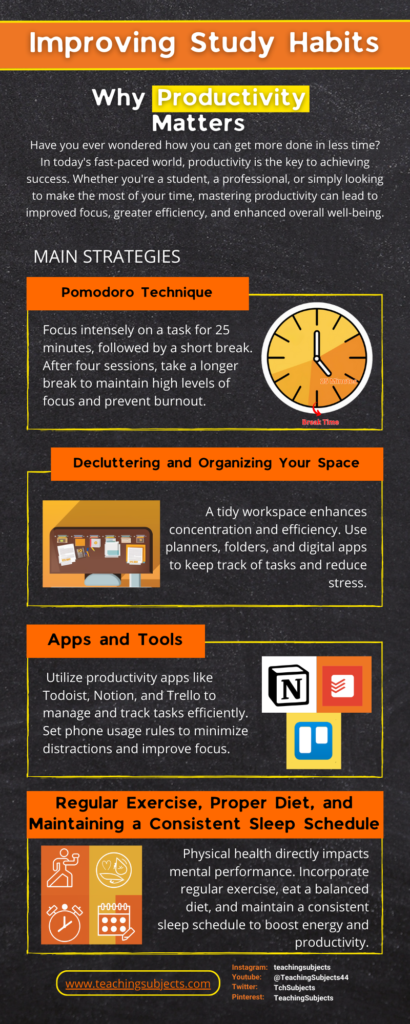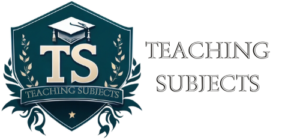Introduction
Imagine sitting in the library, surrounded by textbooks, feeling overwhelmed by the sheer volume of work to be done. You’re not alone; studies show that nearly 80% of college students struggle with procrastination and time management. This post will examine common productivity challenges many students face and why addressing these hurdles is crucial to achieving academic success. We will explore practical strategies for improving study habits, enhance focus and efficiency, and book recommendations. College students can unlock their full potential and navigate their academic journey by mastering the tips in this blog.
Common Challenges Faced by College Students

- Procrastination: One of the most prevalent challenges is procrastination. Students often delay starting their assignments or study sessions due to a lack of motivation, fear of failure, or simply feeling overwhelmed by the tasks ahead. This habit leads to last-minute cramming, increases stress levels, and decreases the quality of work produced.
- Distractions: In today’s digital age, distractions are everywhere. Social media, messaging apps, and even noisy study environments can significantly impede a student’s ability to focus. The constant ping of notifications and the lure of online entertainment can easily divert attention away from academic responsibilities. As such, removing distraction will aid in improving your study habits.
- Overwhelming from Workload: Juggling multiple courses, assignments, projects, and extracurricular activities can overwhelm students. The sheer volume of responsibilities can create a sense of being buried under a mountain of work, leading to mental fatigue and decreased productivity. Prioritizing tasks and breaking them into manageable chunks is often overlooked but essential.
- Poor Time Management: Effective time management is a critical skill that many students struggle with. Balancing academic commitments with social life and personal care requires planning and discipline. Without these skills, students may miss deadlines, pull all-nighters, or sacrifice important aspects of their well-being.
Effective Strategies to Enhance Productivity

- Pomodoro Technique: This time management method involves breaking work into intervals, typically 25 minutes long, separated by short breaks. The idea is to focus solely on the task at hand during these intervals, known as “Pomodoros.” After completing four Pomodoros, take a longer break. This technique helps maintain high levels of focus and prevents burnout, making study sessions more productive.
- Decluttering and Organizing Your Space: A clutter-free environment greatly enhances concentration and efficiency. Organize your study area by keeping only essential materials on your desk and storing away distractions. Utilize organizational tools like planners, folders, and digital apps to keep track of assignments and deadlines. A well-maintained space can reduce stress and help clarify your priorities.
- Apps and Tools: Technology can be a double-edged sword, but productivity apps can help manage tasks more effectively. Apps such as Todoist, Notion, or Trello allow you to plan and track your activities efficiently. Additionally, setting rules for phone usage—like designated “phone-free” study periods—can mitigate distractions and enhance focus. The apps can help in improving your study habits.
- Regular Exercise, Proper Diet, and Maintaining a Consistent Sleep Schedule: Physical health significantly impacts mental performance. Incorporate regular exercise into your routine to boost energy levels and reduce stress. A balanced diet provides the necessary nutrients for optimal brain function while maintaining a consistent sleep schedule ensures that you are well-rested and more alert, enhancing your overall productivity.
Tips for Sustaining Focus

- Minimizing Distractions: It’s crucial to identify and eliminate distractions first to sustain focus. Create a designated study zone that is free from noise and interruptions. Use website blockers and apps like Freedom or StayFocusd to limit access to distracting websites and social media during study sessions. Establish a routine where specific times are dedicated solely to studying, and inform friends and family about these periods to minimize interruptions. Additionally, wearing noise-canceling headphones or playing background instrumental music can help create a conducive environment for focused work. minimizing distractions can help in improving your study habits.
- Active Learning Techniques: Engage in active learning techniques to maintain interest and concentration during study sessions. Summarizing information in your own words, creating flashcards, teaching concepts to a peer, and applying knowledge to real-life scenarios can deepen understanding and retention. Incorporating varied activities like drawing diagrams, writing practice essays, or engaging in group discussions can also break the monotony and enhance focus. Active learning encourages a hands-on approach, making the material more engaging and easier to comprehend.
- Balancing Work and Relaxation: Striking a balance between academic responsibilities and relaxation is key to sustaining long-term focus and productivity. Schedule regular breaks between study sessions to rest and recharge. Activities such as brisk walks, mindfulness exercises, or short naps can refresh the mind and improve focus for subsequent tasks. It’s also important to allocate time for hobbies, socializing, and self-care to prevent burnout and maintain a well-rounded lifestyle. Students can sustain their focus and achieve better academic outcomes by managing time effectively and prioritizing work and relaxation.
Book Recommendations
- “Atomic Habits” by James Clear: This book provides a comprehensive guide on how to build good habits and break bad ones. James Clear uses scientific research and real-life examples to explain the process of habit formation and the impact of small changes. Adopting the principles in “Atomic Habits” for college students can lead to improved study routines, better time management, and increased productivity.
- “Deep Work: Rules for Focused Success in a Distracted World” by Cal Newport: Cal Newport’s book delves into the importance of deep work—focused, distraction-free tasks that can produce significant results. The strategies in “Deep Work” can help students develop techniques to minimize distractions and enhance their concentration, ultimately leading to more effective study sessions and better academic performance.
- “The Power of Habit: Why We Do What We Do in Life and Business” by Charles Duhigg explores the science behind habits and how they can be changed. Students can learn to identify and modify their behavior patterns by understanding the habit loop, leading to more productive and healthier lifestyles. Applying these insights can help create a more structured and disciplined approach to their studies.
- “Mindset: The New Psychology of Success” by Carol S. Dweck: Carol Dweck introduces the concept of “fixed” vs. “growth” mindsets and how these perspectives influence our ability to achieve success. For college students, embracing a growth mindset can foster resilience, encourage a love for learning, and enhance overall academic performance by promoting persistence through challenges.
- “How to Win at College: Surprising Secrets for Success from the Country’s Top Students” by Cal Newport: In this book, Cal Newport compiles advice from successful college students across various institutions. It covers practical tips and strategies to help first-year and upper-level students navigate academic and social challenges, offering a roadmap to excelling in coursework and extracurricular activities.
Conclusion
In summary, developing effective ways to improve your study habits is essential for academic success. Students can enhance their focus and productivity by minimizing distractions, engaging in active learning techniques, and balancing work with relaxation. The recommended books offer valuable insights and strategies to build productive routines, develop resilience, and manage time effectively. Implementing these practices can lead to better academic performance and a more balanced, fulfilling college experience. By adopting these principles students can achieve their academic goals and thrive in their educational journey.















